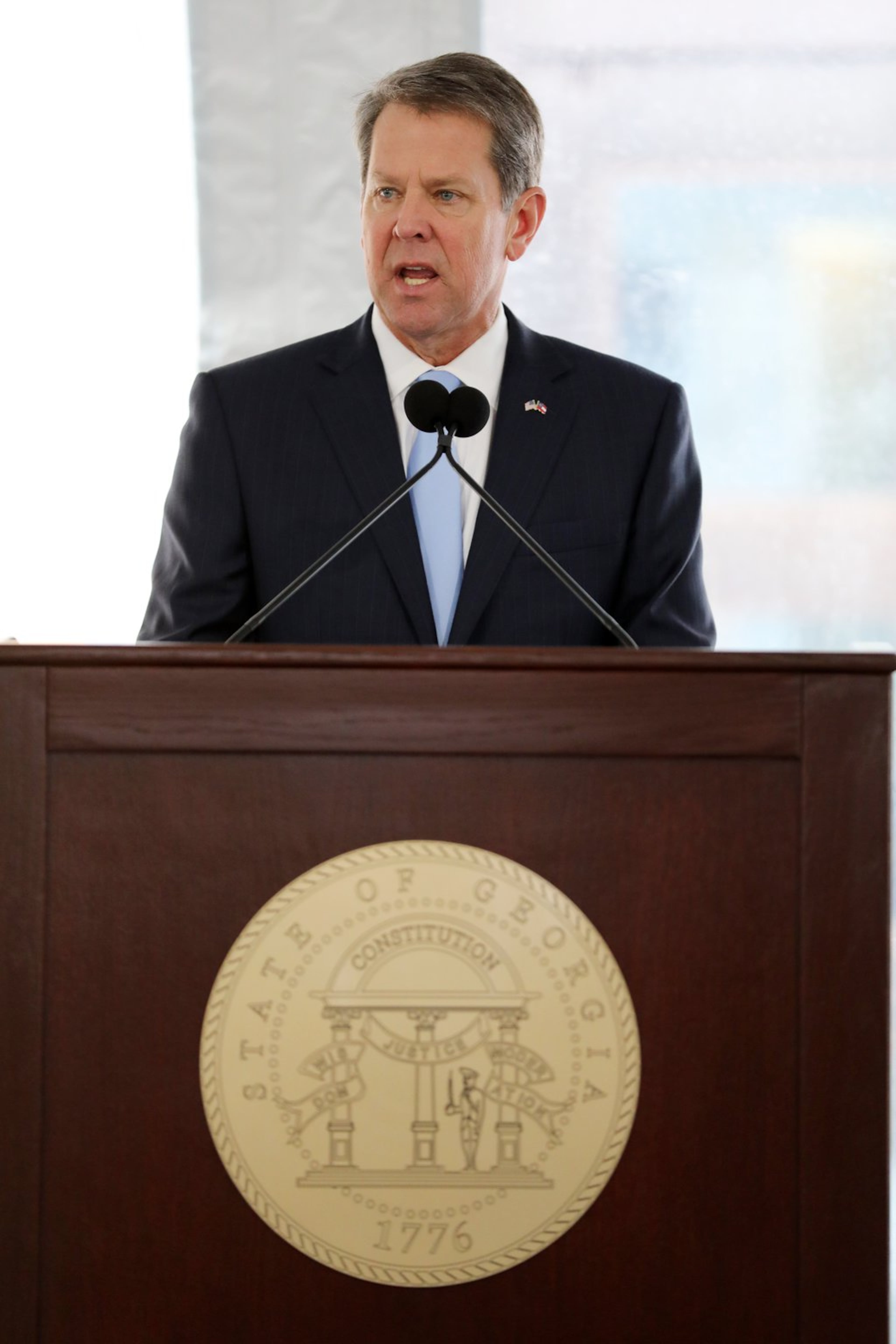Justice Thomas: Judges aren’t ‘mass media icons,’ should uphold the law

Judges must adhere to the rule of law and not substitute their own racial, religious or partisan preferences to achieve a desired result, U.S. Supreme Court Justice Clarence Thomas said Tuesday.
“Our decisions should not be driven by a desire to be revered or lionized for reaching certain outcomes,” he said. “We are not mass media icons. We are judges, nothing more and nothing less.”
Thomas preached his long-held belief of the need for judicial restraint at the dedication ceremony for the new Nathan Deal Judicial Center.
The $131 million structure, fitted with Ionic marble columns, stained hickory paneling and furniture made by state prison inmates, opened for business in December. It is now home to the Georgia Supreme Court, the Court of Appeals and the state’s new Business Court.

The ceremony, packed with lawmakers, judges and state officials, was held inside a huge tent just outside the judicial center to shield attendees from the wind and rain.
Former governor Deal, his voice sometimes wavering with emotion, said he was grateful the new building bears his name.
“I am very honored and I thank all of you who made this possible,” he said.

Gov. Brian Kemp said the building was appropriately named for his predecessor, noting that Deal's criminal justice reform initiatives made Georgia a national leader. "It set a standard across our country," Kemp said.
The judicial center now sits where the Georgia Archives building stood for decades. Groundbreaking for the center began in August 2017, five months after the archives building was demolished.
Inmates from Ware State Prison built desks, tables and filing cabinets for the new center. Hancock State Prison inmates reupholstered and embroidered the chairs used by the nine justices in the Supreme Court of Georgia courtroom.

On Monday evening, state Justices Charles Bethel and Michael Boggs presented Thomas with another item built by Ware State inmates: a gavel made with wood from Thomas's hometown of Pinpoint, Ga.
“I can’t tell you how touched I was,” Thomas said.
The conspicuously reticent justice, who rarely asks questions during oral arguments, said he was pleased to return to Georgia for such an occasion.
“This is a magnificent architectural achievement that should evoke pride in the entire state,” Thomas said. “… It embodies the ideals of our courts, as well as Gov. Deal’s deeply personal commitment to criminal justice reform and to this great state.”

As for judges, they sometimes substitute what the law requires to achieve their desired outcome in particular cases, Thomas said.
“Those outcomes may be driven by the judge’s desire to solve what he or she considers to be a problem created by the Legislature,” he said. “Or they may be driven by the notion that judges must decide cases in accordance with their own racial, religious or partisan preferences or, for that matter, their personal prejudices.”
Judges are “imperfect and flawed human beings,” and not one is immune from such temptations, the justice said.
“In recognition of this reality, we judges … must be disciplined and on guard to make sure that we do not overstep our bounds,” Thomas said. “Each time a judge sidesteps or manipulates the law to achieve the desired outcome, the rule of law suffers.”



